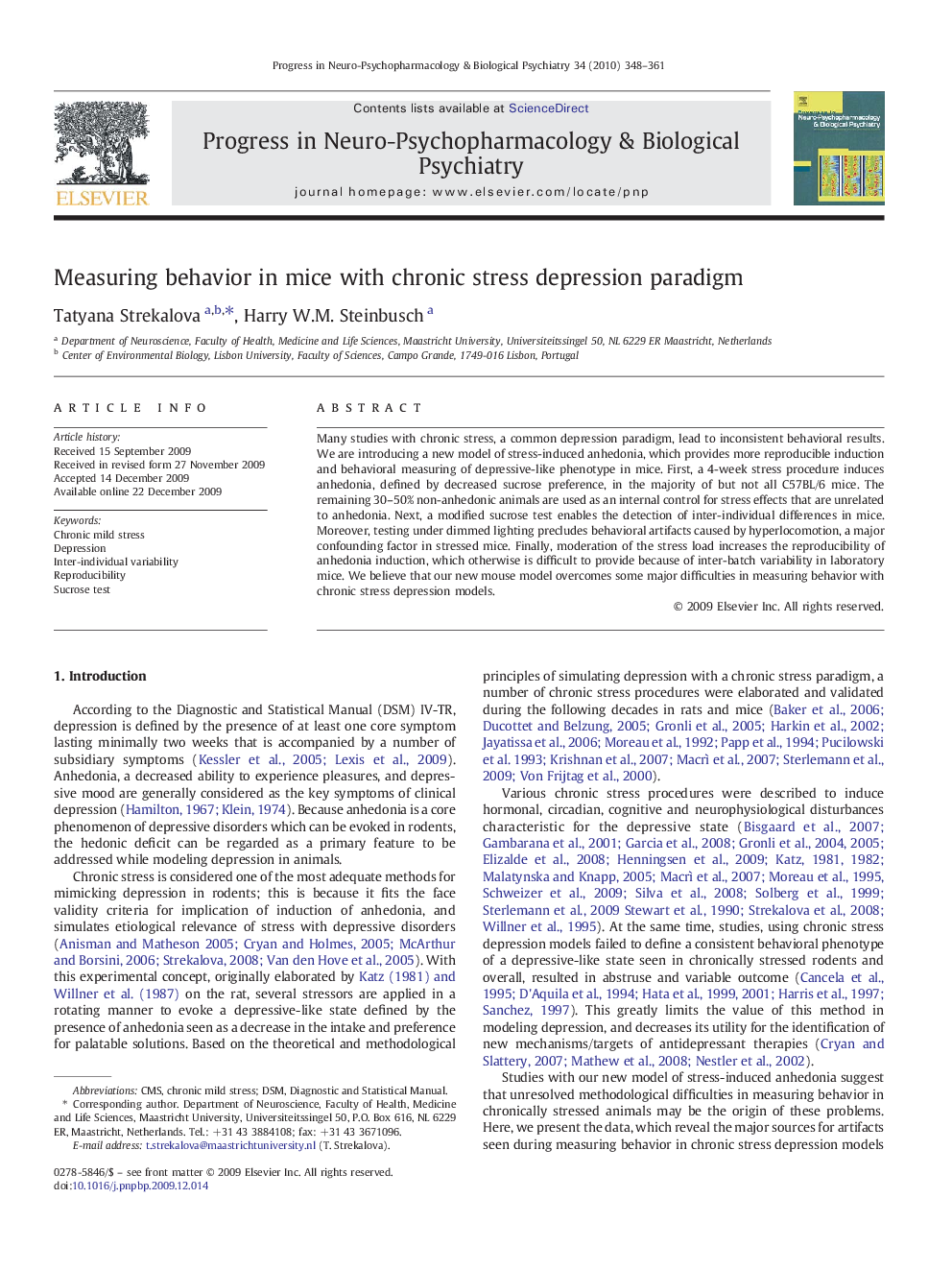| Article ID | Journal | Published Year | Pages | File Type |
|---|---|---|---|---|
| 2565572 | Progress in Neuro-Psychopharmacology and Biological Psychiatry | 2010 | 14 Pages |
Many studies with chronic stress, a common depression paradigm, lead to inconsistent behavioral results. We are introducing a new model of stress-induced anhedonia, which provides more reproducible induction and behavioral measuring of depressive-like phenotype in mice. First, a 4-week stress procedure induces anhedonia, defined by decreased sucrose preference, in the majority of but not all C57BL/6 mice. The remaining 30–50% non-anhedonic animals are used as an internal control for stress effects that are unrelated to anhedonia. Next, a modified sucrose test enables the detection of inter-individual differences in mice. Moreover, testing under dimmed lighting precludes behavioral artifacts caused by hyperlocomotion, a major confounding factor in stressed mice. Finally, moderation of the stress load increases the reproducibility of anhedonia induction, which otherwise is difficult to provide because of inter-batch variability in laboratory mice. We believe that our new mouse model overcomes some major difficulties in measuring behavior with chronic stress depression models.
